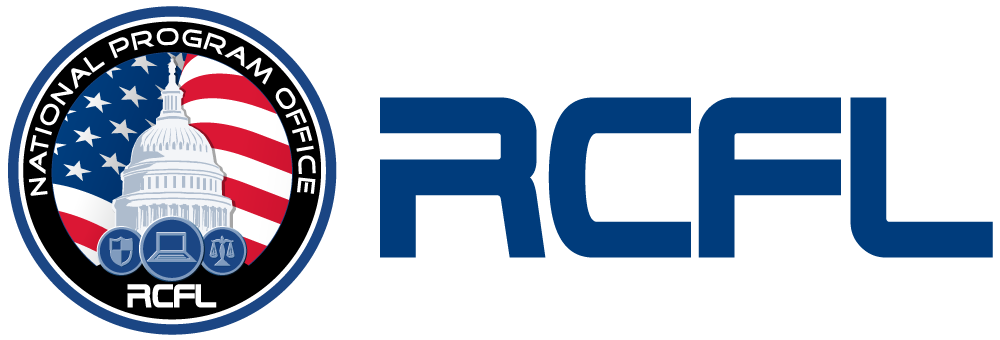Services Offered
The New Jersey RCFL provides digital forensic services to any law enforcement agency within the State of New Jersey. Services include digital data preservation, acquisition and analysis of computers, mobile devices, and video. Personnel from the NJRCFL can provide telephonic or on-site technical guidance for recognizing and seizing items which may store digital data. Services also include training to law enforcement in New Jersey in our classroom or through speaking engagements at conferences and training seminars at your facility.
Any law enforcement agency operating in New Jersey may request assistance with the following activities:
Pre-Seizure Consultation
The NJRCFL can help with search warrant preparation (only as it applies to computer evidence) by advising on computer related language, which may be included in the affidavit.
On-Site Seizure and Collection
Requests for this type of assistance should be made a minimum of 48 hours in advance (the more lead time the better) by submitting a completed On-site Search Request form. On occasion, an agency will uncover computer evidence that they are unprepared to manage. Under these circumstances, the agency should contact the NJRCFL by phone. Once the NJRCFL evaluates the search request, the lab management will assign it to an Examiner for action.
Duplication, Storage and Preservation of Computers and Computer Related Evidence
Examinations are typically conducted on copies of the original evidence because of the possibility that the data may be contaminated. Therefore, NJRCFL Examiners, depending on the circumstances, will either duplicate (or copy the information) the media on-site, or they will bring the electronic equipment to the laboratory where they will duplicate the media and then perform the examination.
Prompt, Accurate and Impartial Forensic Examinations of Digitally Stored Media
Computer Forensic Examiners are scientists. As scientists, their job is to conduct a thorough and objective examination of a computer and/or computer related evidence to convert it from a digital format into something that the investigator can view. It is not the Examiner's responsibility to analyze the data for its meaning or significance to the investigation. This impartiality and objectivity lends credibility to both their findings and subsequent court testimony.
Courtroom Testimony
As records are recovered from seized computer evidence, the prosecutor is likely to direct the Examiner to introduce the computer or computer related evidence into court. As an expert witness, the Examiner can explain, under oath, about how they conducted the examination and what they discovered as a result.
MOBILE DEVICE UNLOCK SERVICES (MDUS)
The NJRCFL will facilitate the unlocking and analysis of cellular devices either through in-house operation, or through the FBI’s digital laboratory in Quantico, Virginia. Due to cost and the number of requests for this service, the NJRCFL will only accept devices from participating agencies that are require to be sent to the FBI’s digital laboratory in Quantico, Virginia.
The recommended evidence handling procedures for locked devices for which you cannot obtain a password is different than with other devices. For locked devices, follow this procedure:
- If the phone is on, ensure it stays ON
- Remove the SIM Card from the device. Attempt to place the phone in airplane mode and ensure that WiFi and Bluetooth is also shut off
- Place in faraday bag, connect phone to battery pack with charging cable and verify the charging pack is turned on. The battery pack, charging cable, and phone must be entirely contained in the bag or signals may be able to reach the phone
- Gather legal authority
- Submit request to NJRCFL
- After evidence appointment has been scheduled, bring evidence to the NJRCFL for drop-off (battery pack and faraday bag will be returned at the time of drop-off)
It is strongly encouraged for agencies to purchase faraday bags and battery charging packs. While the NJRCFL does not endorse any particular company for purchasing, there are several options available in stores and on-line. We recommend agencies purchase a faraday bag large enough to contain the cellular device, a battery charging pack, and cable.
As always, if you have any questions, you may contact the NJRCFL Director Steven Newman or Deputy Director Cy Bleistine. Examiners are available for call-out and on-site assistance as needed.
Loose Media Kiosk
The NJRCFL offers the self-service Loose Media Kiosk (LMK) preview tool to all law enforcement personnel within our service area. LMK enables users to review evidentiary data found on such items as USB devices, CD/DVDs, flash memory cards, floppy disks and external hard drives. To make arrangements to use the LMK, call (609) 631-8777 in advance to schedule an appointment.
View or Download the LMK Quick Reference Guide.
Mobile Device Kiosks (cell phones, tablets, GPS)
The NJRCFL has a mobile device kiosk which is available to all law enforcement personnel within our service area. This kiosk is a self-service tool which allows users to extract data from a mobile device, put it into a report, and copy the report to a thumb drive or burn it to a CD/DVD/Blu-ray in as little as 30 minutes. It is recommended that you bring at least a 64GB thumb drive with you as the Lab cannot provide one for you. To make arrangements to use the kiosk, call (609) 631-8777 in advance to schedule an appointment.
View or Download the Cell Phone Investigative Kiosk (CPIK) program's brochure.
